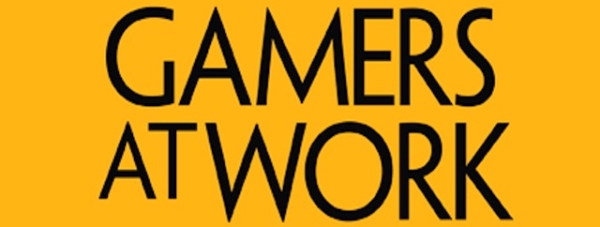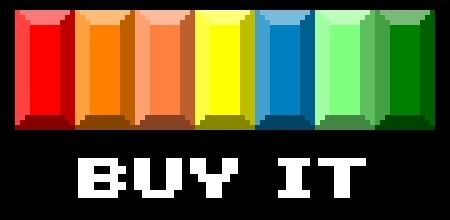
Morgan Ramsay’s Gamers At Work delivers a lot of behind-the-scenes information about the video game industry right from the source: the mouths of some of the most powerful and influential people involved in starting and fueling it. Ramsay interviews Nolan Bushnell, Don Daglow, Trip Hawkins, Ted Price, Warren Spector, and a dozen other founders, developers, programmers, and entrepreneurs. More than just a dry question and answer session, Ramsay gets to the heart, asking pointed questions and drawing out interesting – and sometimes emotional – stories.
Author: Morgan Ramsay (Editor)
Publisher: Apress
Release Date: February 9, 2012
It’s obvious Ramsay has dedicated much time and effort to this project. It must have been a herculean endeavor just to transcribe the vast interviews in each chapter. When I mentioned to Don Daglow at GameFest that I was reading his chapter, he said, “I can’t believe the amount of work Morgan put into that. He had to transcribe all of those himself!” But it’s also clear, from the questions he poses as well as where he leads the interviewee, that Ramsay is passionate about this topic, and that he knows a lot about the games space.
There’s a lot here to take in, and every chapter is worth reading for one reason or another. Interested in the early years? The first two chapters cover Trip Hawkins, the founder of Eletronics Arts, and Nolan Bushnell, the cofounder of Atari and the father of Chuck E. Cheese. Want something a little more entrepreneurial? Wild Bill Stealey, cofounder of MicroProse Software, has you covered in chapter three. Warren Spector’s chapter was more personal than I expected, detailing just how he came to work on Disney’s Epic Mickey.
But there’s also some stuff that’s far less mainstream, like the story of the founders of Broderbund, brothers Doug and Gary Carlston. One of my favorite chapters was with Don Daglow, the founder of Stormfront Studios. His frank and friendly replies, especially when discussing the development of the AI for their early baseball games, are as heartwarming as they are informative. Want to know the history of Oddworld? Check out chapter 12: Lorne Lanning, Cofounder of Oddworld Inhabitants. His replies, too, were in-depth, especially this one in regard to expectations:
You know, people do it in relationships all the time. One of my partners now, Daniel Goldman, has a dating analogy for every possible thing you could think of that relates to business. So, your friend comes back and says, “Wow, man. I met this girl, and I’m just totally in love. I want to get married.” He’s saying all this stuff, and you’re just like, “Wow, she sounds really special.” And then you meet her, and you realize she’s a witch, or this guy’s a jerk, or how can this girl be so in love with him, or vice versa. That person has an unrealistic fantasy, right? Their friends are looking at them going, “Dude, you just don’t see it.” I think that’s kind of like hiring. You want this date to work out, so you’re kind of looking at it blindly with hope. Hope is clouding your judgment.
It’s a beautiful analogy, and that last line is touching: “Hope is clouding your judgment.” That’s so true, in everything from hiring people to developing friendships.
The last three chapters were the most interesting to me, mainly because they’re about studios whose games I’ve grown to love. I was stunned at the intelligence of Christopher Weaver, founder of Bethesda Softworks. He started as “a technology forecaster and telecommunications engineer for the television and cable industry,” where he was later made the manager of technology forecasting. From there, he was given the chance to head the Office of Science and Technology for the National Cable Television Association. He’s been involved in countless other committees and boards, and now teaches in a program I long to be a part of – the Comparative Media Studies program at MIT.
The founder of Insomniac Games, Ted Price, was the last chapter. While I loved reading about the beginnings of the Resistance series, nothing compared to the second-to-last chapter: the birth and early years of Naughty Dog through the eyes of cofounder Jason Rubin. He became a game developer at 15, and became a contracted developer for EA at 17. Did they create a business plan, Ramsay asked?
Business plan? We were 16. Our business plan was to do whatever we thought was cool. Income? Whatever we could make. Expenses? Ask our parents; they paid for the power and the rent.
Gamers At Work is one of the best books I’ve ever read about the world of video games. It’s got more than just history: it’s the heart and soul of the industry, as told from some of its key members. I only have one major complaint about the book: I wanted it to be longer, and focus on developers outside of America as well. That’s not really a complaint so much as a suggestion for a sequel. I want to see European and Japanese developers. I know this was a huge undertaking for Ramsay, but I wish he’d had a whole team on it. He could make an entire series out of this. This is a book that every aspiring game developer must read, and that anyone into video game history should read. And no, you can’t borrow mine – I got it signed by Nolan Bushnell. Sorry!

Review Disclosure: A review copy of Gamers At Work was provided by Apress for the purposes of this review.






